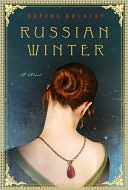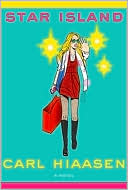The Satanic Verses: A Novel
#1 NEW YORK TIMES BESTSELLER • “[A] torrent of endlessly inventive prose, by turns comic and enraged, embracing life in all its contradictions. In this spectacular novel, verbal pyrotechnics barely outshine its psychological truths.”—Newsday Winner of the Whitbread Prize One of the most controversial and acclaimed novels ever written, The Satanic Verses is Salman Rushdie’s best-known and most galvanizing book. Set in a modern world filled with both mayhem and miracles, the story begins...
Search in google:
Just before dawn one winter's morning, a hijacked jetliner explodes above the English Channel. Through the falling debris, two figures, Gibreel Farishta, the biggest star in India, and Saladin Chamcha, an expatriate returning from his first visit to Bombay in fifteen years, plummet from the sky, washing up on the snow-covered sands of an English beach, and proceed through a series of metamorphoses, dreams, and revelations.Michiko KatukaniThe Satanic Verses is less concerned with history than with the broader questions of good and evil, identity and metamorphosis, race and culture. . . .There is a fine story somewhere in this volume — that of Saladin and his attempts to define a self that might embrace both the present and the past — but it doesn't take 500-plus pages to tell. — The New York Times
I. The Angel Gibreel II. Mahound III. Ellowen Deeowen IV. Ayesha V. A City Visible but Unseen VI. Return to Jahilia VII. The Angel Azraeel VIII. The Parting of the Arabian Sea IX. A Wonderful Lamp
\ Michiko KatukaniThe Satanic Verses is less concerned with history than with the broader questions of good and evil, identity and metamorphosis, race and culture. . . .There is a fine story somewhere in this volume — that of Saladin and his attempts to define a self that might embrace both the present and the past — but it doesn't take 500-plus pages to tell. — The New York Times\ \ \ \ \ Publishers Weekly - Publisher's Weekly\ Banned in India before publication, this immense novel by Booker Prize-winner Rushdie (Midnight's Children) pits Good against Evil in a whimsical and fantastic tale. Two actors from India, ``prancing'' Gibreel Farishta and ``buttony, pursed'' Saladin Chamcha, are flying across the English Channel when the first of many implausible events occurs: the jet explodes. As the two men plummet to the earth, ``like titbits of tobacco from a broken old cigar,'' they argue, sing and are transformed. When they are found on an English beach, the only survivors of the blast, Gibreel has sprouted a halo while Saladin has developed hooves, hairy legs and the beginnings of what seem like horns. What follows is a series of allegorical tales that challenges assumptions about both human and divine nature. Rushdie's fanciful language is as concentrated and overwhelming as a paisley pattern. Angels are demonic and demons are angelic as we are propelled through one illuminating episode after another.\ \ \ Library JournalWhen a terrorist's bomb destroys a jumbo jet high above the English Channel, two passengers fall safely to earth: Gibreel, an Indian movie actor, and Saladin, star of the controversial British television program, 'The Alien Show.' The near-death experience changes them into living symbols of good and evil -- Saladin grows horns, Gibreel a halo. From this fantastic premise Rushdie spins a huge collection of loosely related subplots that combine mythology, folklore, and TV trivia in a tour de force of magic realism that investigates the postmodern immigrant experience. (Why does an Indian expatriate feel homesick watching reruns of 'Dallas'?) Like Rushdie's award-winning novel Midnight's Children, this invites comparison with the miracle-laden narratives of Gabriel Garcia Marquez. -- Edward B. St. John, Loyola Law Sch. Lib., Los Angeles\ \ \ \ \ Michiko KatukaniThe Satanic Verses is less concerned with history than with the broader questions of good and evil, identity and metamorphosis, race and culture. . . .There is a fine story somewhere in this volume -- that of Saladin and his attempts to define a self that might embrace both the present and the past -- but it doesn't take 500-plus pages to tell. -- The New York Times\ \








